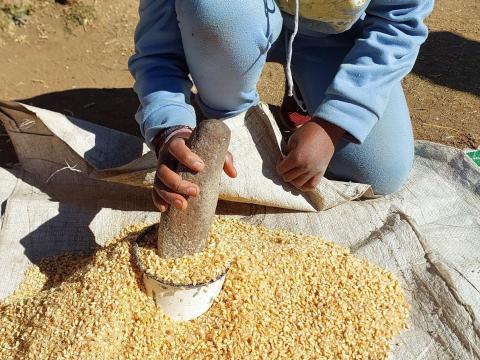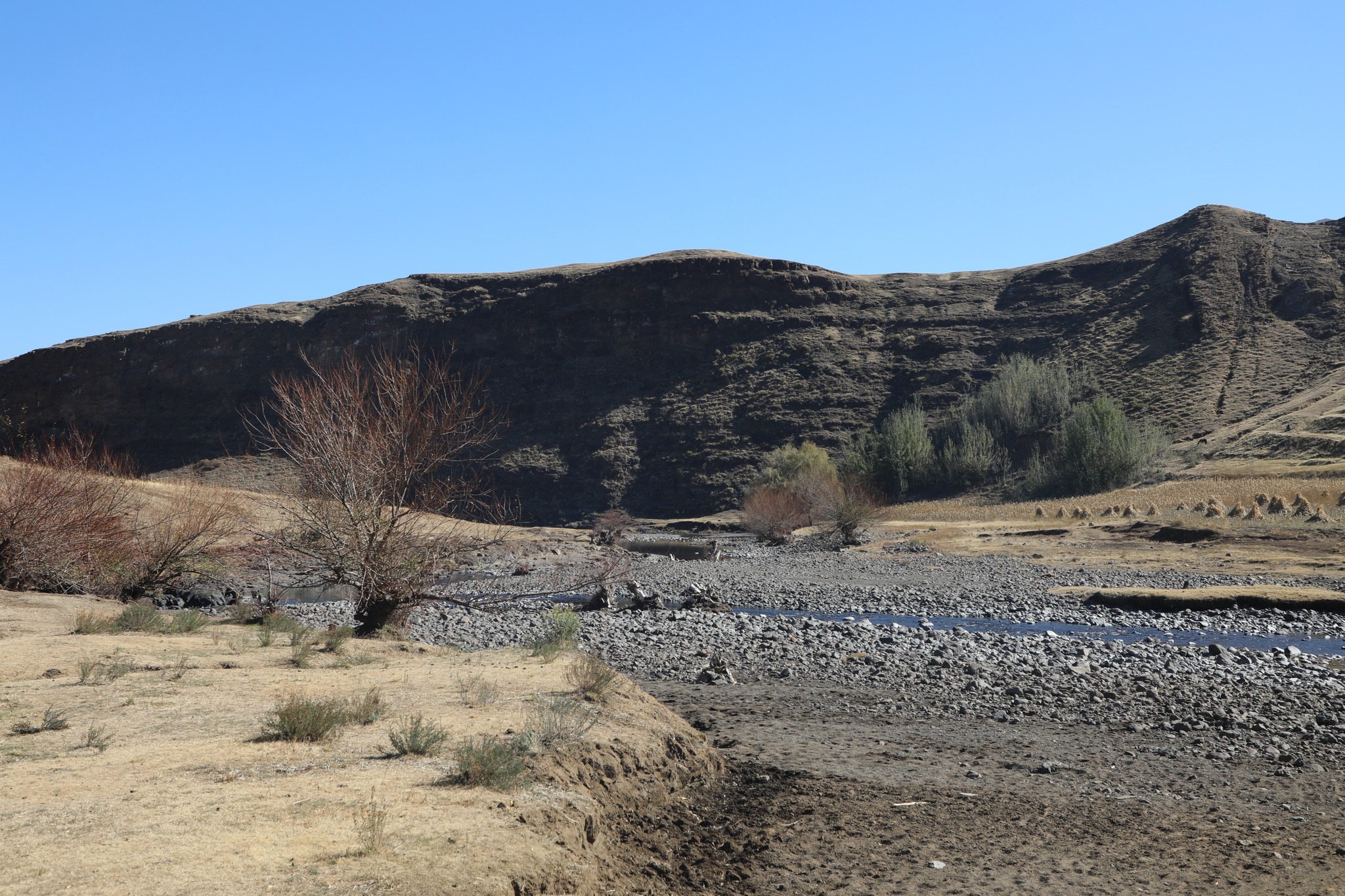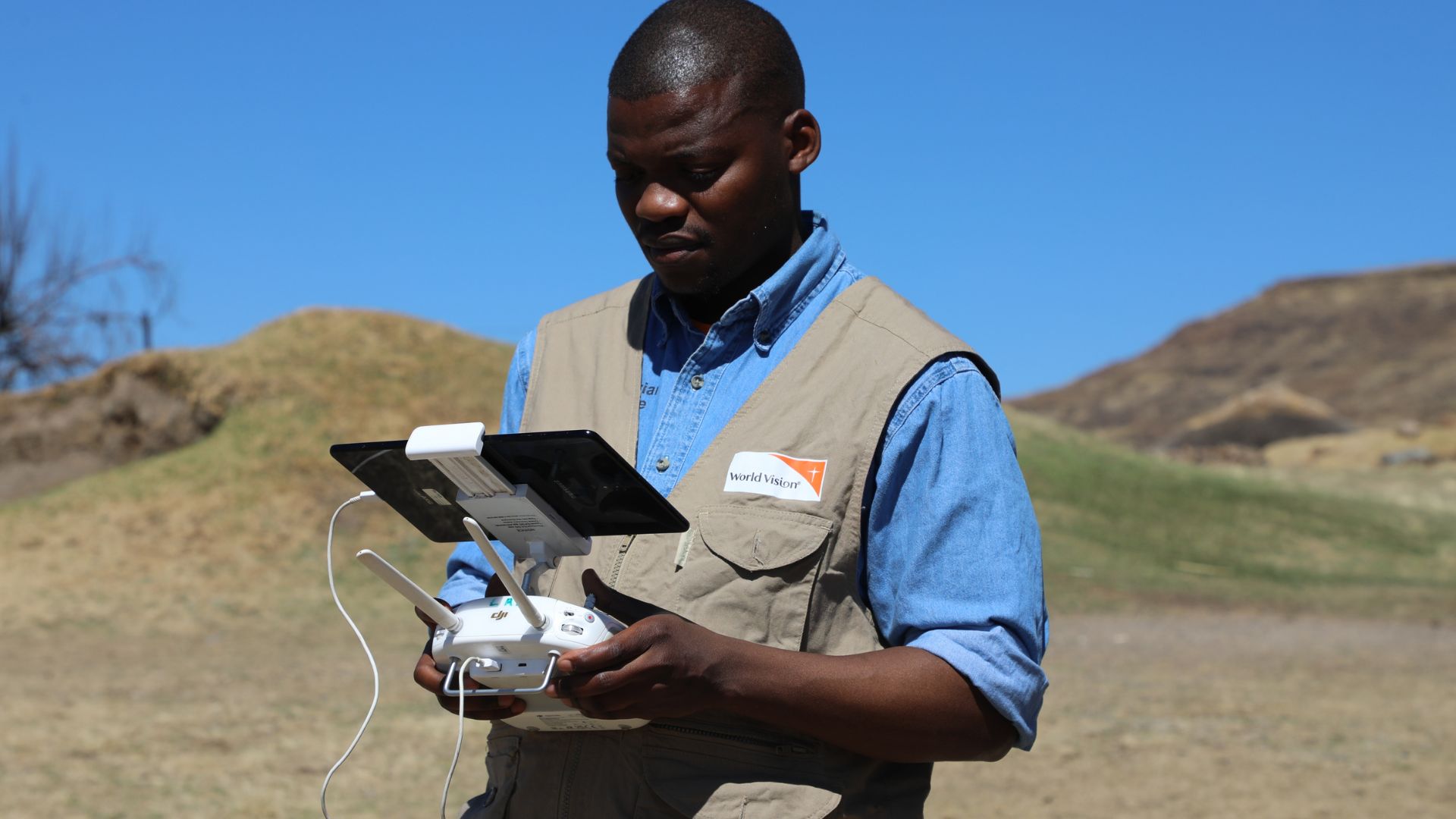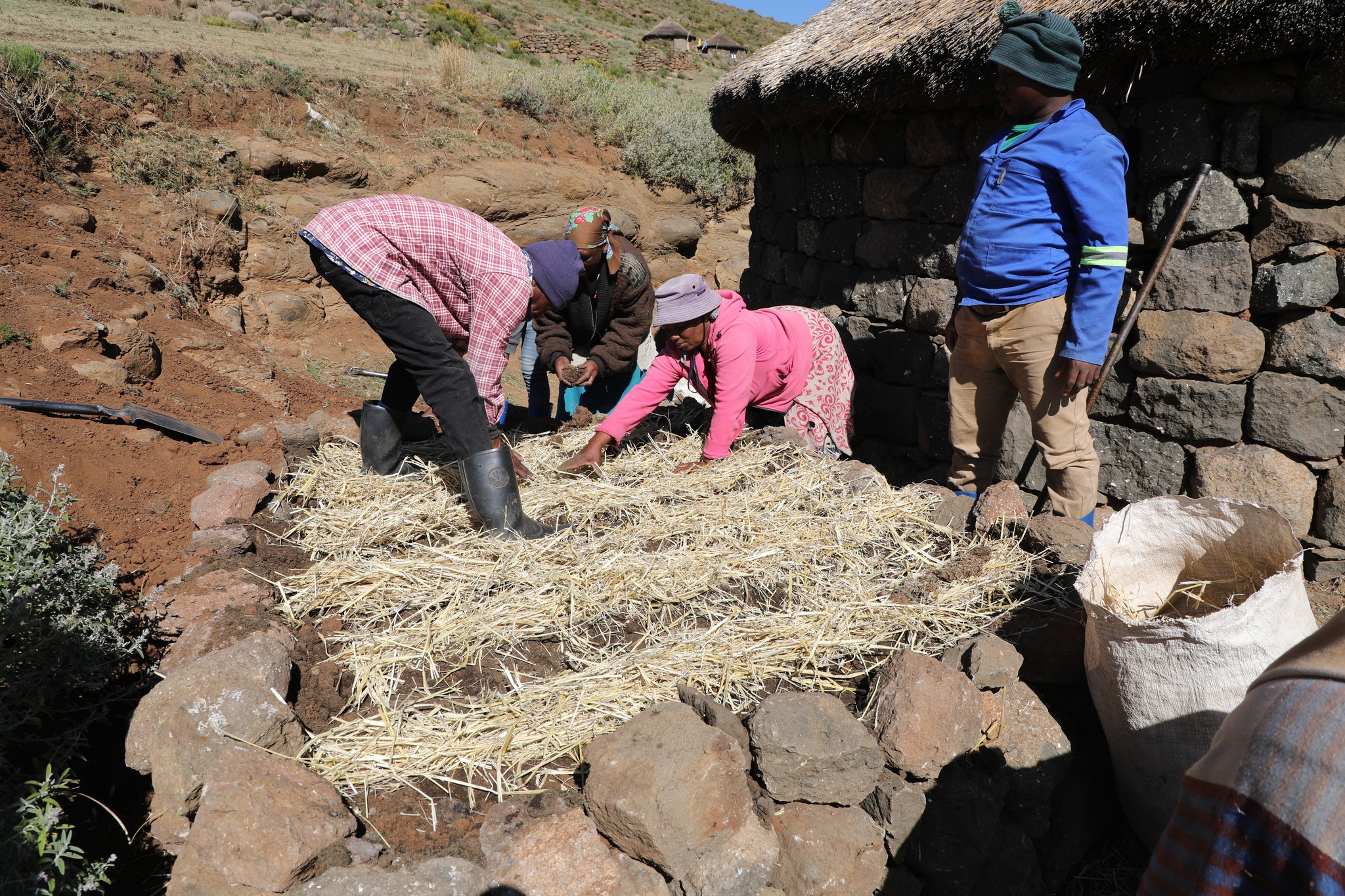Lesotho Declares National Disaster: Food Insecurity Due to El Niño-Induced Drought

Lesotho stands on the brink of a humanitarian disaster. The Government has declared a national state of food insecurity disaster as the most severe El Niño-induced drought in a century ravages the country and the broader Southern Africa region. This crisis, unfolding in the shadow of global attention, threatens the very fabric of Basotho communities.
The scale of this disaster is overwhelming. Across Southern Africa, 40 to 80 percent of the maize crop has been lost, but the impact on Lesotho is particularly devastating. An alarming 700,000 Basotho; nearly one-third of the country's population now face severe food insecurity. This marks a distressing increase from 582,000 just a year ago, highlighting the rapidly deteriorating situation.
According to the World Food Program (WFP)'s Lesotho Annual Country Report 2023, published on 2 April 2024, Lesotho remains one of the most unequal countries globally. Nearly half of the population (49.7 percent) lives below the food poverty line, with a stark rural-urban divide in poverty distribution, affecting over 80 percent of the poor residing in rural areas. Of particular concern are children, with 65 percent classified as multi-dimensionally poor, and over a quarter being orphans.
The latest Integrated Food Security Phase Classification (IPC) Acute Food Insecurity analysis further illustrates the gravity of the situation. From July to September 2023, approximately 245,000 people in rural Lesotho (16 percent of the analyzed population) were experiencing high levels of acute food insecurity (IPC Phase 3 or above – Crisis or worse). Out of the 10 districts analyzed, five were classified as IPC Phase 2 (Stressed), while the remaining five were in IPC Phase 3 (Crisis). These findings underscore the urgent need for action to reduce food gaps, protect and restore livelihoods, and prevent acute malnutrition.

Lesotho now faces the adverse effects of climate change, which have led to increased frequency of extreme weather events such as droughts, soil erosion, and reduced soil fertility. These factors significantly impact livelihoods, incomes, food security, and the country's agriculture-based economy. Food insecurity persists as a significant challenge, disproportionately affecting vulnerable groups such as children, women, individuals living with HIV/AIDS, persons with disabilities, unemployed youth, and rural dwellers.
The consequences of this drought reach far beyond empty fields. Families are being torn apart as people migrate in search of better opportunities, heightening their vulnerability and susceptibility to human trafficking. Children are dropping out of school, their futures hanging in the balance as malnutrition rates soar. The health system, already strained, is buckling under the weight of increasing illness and desperation. Water sources are drying up, leaving communities without this most basic necessity for survival. The economic impact is equally severe, with food prices skyrocketing and livelihoods crumbling, pushing even more families into the abyss of poverty.
The El Niño-induced drought and floods have far-reaching impacts on agriculture and livelihood security, food security, nutrition, health, water, and energy, calling for coordinated, integrated, and harmonized interventions to address these adverse effects.
World Vision Lesotho's Urgent Response
In the face of this unprecedented crisis, World Vision Lesotho is launching a multifaceted, urgent response that addresses immediate needs while building long-term resilience. Our strategy is rooted in the understanding that this is not just a food crisis, but a complex emergency that requires a holistic approach.
At the forefront of our response is the rapid deployment of emergency food aid. Teams are working around the clock to reach the most vulnerable communities, providing life-saving nutrition to those on the brink of starvation. Alongside this, we are implementing critical water and sanitation interventions. Clean water is not just a necessity for drinking, but crucial for maintaining hygiene and preventing the spread of diseases that could further devastate weakened communities.
Recognizing that short-term aid is not enough, we are simultaneously rolling out sustainable agriculture initiatives through our Environmental Sustainability and Climate Action program. This includes the introduction of drought-resistant crops and innovative irrigation systems designed to withstand the harsh realities of a changing climate. We're not just helping farmers plant crops; we're helping them reimagine agriculture for a more resilient future.
Our response extends beyond the fields. We're bolstering local healthcare facilities, equipping them to handle the surge in malnutrition cases and drought-related illnesses. This includes providing essential medicines and training healthcare workers in remote areas.
 Central to our strategy is the empowerment of communities through disaster risk reduction. We're establishing early warning systems for climate-related hazards using drone technology, working hand-in-hand with the Disaster Management Authority through the European Union-funded Consolidation and Strengthening of Disaster Risk Reduction project. These systems will provide communities with vital information, allowing them to take proactive measures before disaster strikes. Furthermore, we're conducting extensive training in disaster preparedness and response, ensuring that communities are not just recipients of aid, but active participants in their own resilience.
Central to our strategy is the empowerment of communities through disaster risk reduction. We're establishing early warning systems for climate-related hazards using drone technology, working hand-in-hand with the Disaster Management Authority through the European Union-funded Consolidation and Strengthening of Disaster Risk Reduction project. These systems will provide communities with vital information, allowing them to take proactive measures before disaster strikes. Furthermore, we're conducting extensive training in disaster preparedness and response, ensuring that communities are not just recipients of aid, but active participants in their own resilience.
Understanding the need for economic resilience, we're initiating programs to diversify livelihoods. This includes skills training for alternative income sources less dependent on rainfall, helping families weather future climate shocks. We're also advocating for the expansion of social protection programs, creating a safety net for the most vulnerable.
 Education forms another crucial pillar of our response. We're launching community education programs on climate change, its impacts, and adaptation strategies. This knowledge empowers communities to make informed decisions and take proactive measures to protect their futures.
Education forms another crucial pillar of our response. We're launching community education programs on climate change, its impacts, and adaptation strategies. This knowledge empowers communities to make informed decisions and take proactive measures to protect their futures.
None of this work happens in isolation. We're strengthening partnerships between government agencies, NGOs, the private sector, and academic institutions to ensure a coordinated, comprehensive approach. Through persistent advocacy, we're pushing for the integration of disaster risk reduction strategies into national and local development plans, aiming to build a more resilient Lesotho from the ground up.
A Call for Immediate Action
The situation in Lesotho is nothing short of dire. Every day that passes without action means more lives at risk; more futures jeopardized. We call on the global community; governments, organizations, and individuals to recognize the gravity of this crisis and act now. Your support can mean the difference between life and death for hundreds of thousands of Basotho.
This is more than a food crisis; it's a fight for the future of an entire nation. The drought in Lesotho lays bare the devastating reality of climate change and the urgent need for global action. As we respond to this immediate crisis, we must also commit to addressing its root causes, working towards a world where such suffering becomes a thing of the past.
The time for action is now. Join us in this critical mission to save lives, rebuild communities, and forge a path towards a more resilient and sustainable future for Lesotho. Together, we can turn the tide of this catastrophe and help the Basotho people not just survive but thrive in the face of adversity.